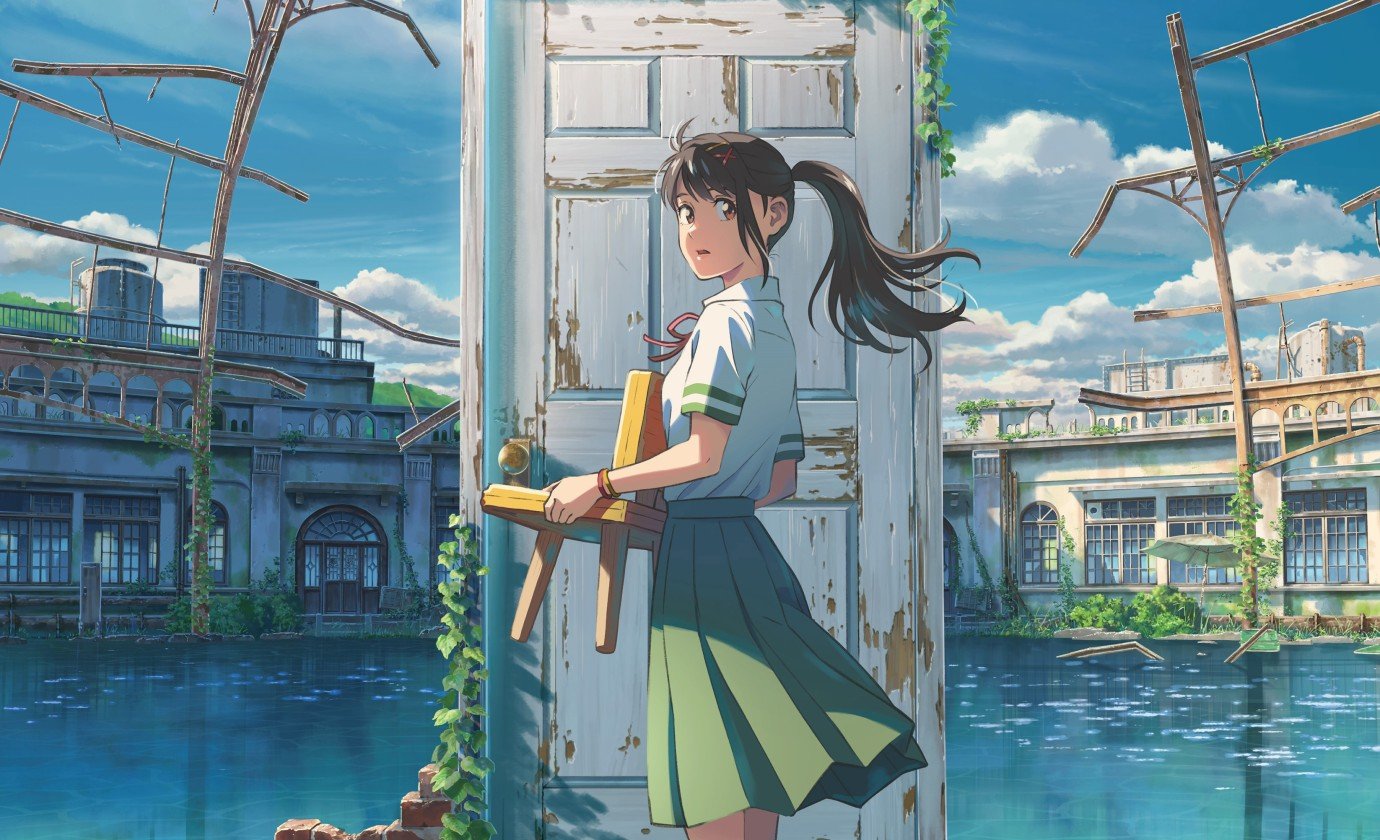Berlinale 2023: Suzume
Japanese cinema is no stranger to adapting real-life tragedies into fantastical commentaries. The prime example is Ishirō Honda with Godzilla, where the aftermath of the two nuclear bombs on Hiroshima and Nagasaki led to the birth of a destructive lizard creature. Makoto Shinkai does a similar thing with his latest animated fantasy, Suzume. The devastating earthquake and tsunami of March 2011 deeply affected the filmmaker, and with this film, he explores whether people are powerless in front of nature.
Young Suzume is an orphan, living with her aunt and leading a relatively normal life. One day, a dashing stranger, Souta, comes into town and a portal to another dimension is accidentally opened. Suzume embarks on a quest through Japan to close these various portals with Souta, meeting a colorful cast of characters and discovering what happened to Suzume’s mother.
Suzume manages to work because of its familiarity. After all, stories of female high school students having adventures are very popular, and the legendary Hayao Miyazaki has featured plenty of memorable girls as protagonists. Shinkai manages to build upon this legacy with pure inventiveness, as some twists and turns related to Souta and the guardians that protect these portals from unleashing a phallic-looking giant worm are unexpected and peculiar, to say the least.
The first 20 minutes of Suzume are intoxicating to watch unfold, for the high level of intensity, bombastic score (courtesy of rock band RADWIMPS), and vibrant animation are all of the highest quality. This is one of the most expensive anime films yet, and every yen is seen on screen: the CGI especially, which is often cheap and overused in other Japanese productions, is seamlessly implemented with the hand-drawn environments and characters. The latter are also beautifully detailed, with the cat-shaped guardians being an instant favorite of the “cute animal sidekick” category.
The epic scope and large stakes of the story are beautifully contrasted by the intimate reality of Suzume: she is deeply scarred by the loss of her single mother at the age of four, and her blossoming relationship with Souta helps her confront her grief and find peace within herself. This act of healing is both personal to Suzume, but also universal to Japan and the whole world, especially after the shared suffering of the pandemic that most are still recovering from. Like all great action adventures, it is this emotional core that makes Suzume such an engaging and even emotional piece of animation, with its environmental and psychological themes elevating it a notch above its American competition. Clocking in at just over 2 hours, it is an absolute blast, masterfully paced and immensely sweet and tender in its final moments. Shinkai reaches such a high level of excitement and novelty that puts many other films, both animated and not, to shame.


